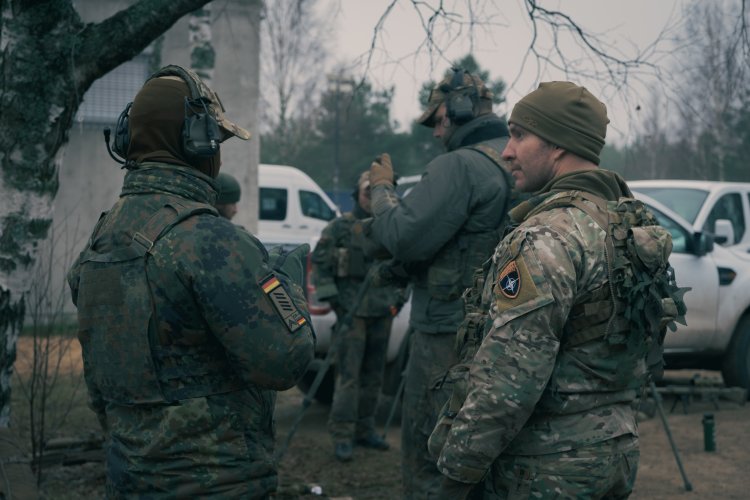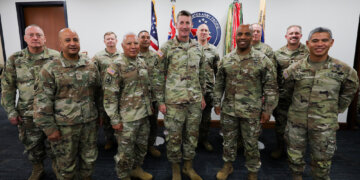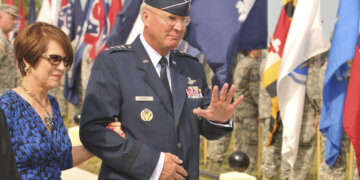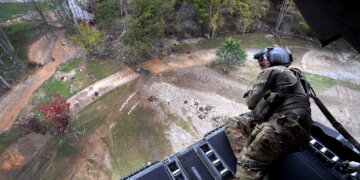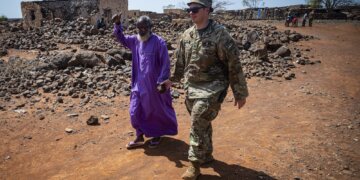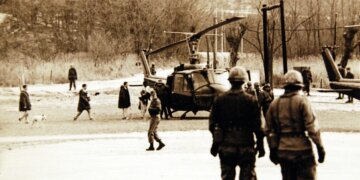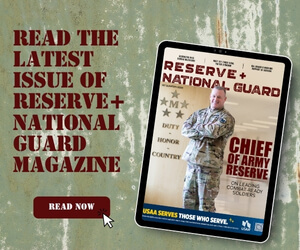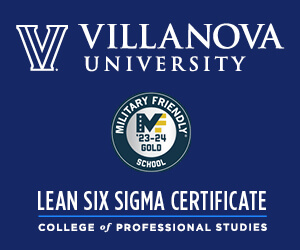As 3rd Battalion, 161st Infantry Regiment, was arriving in Poland in April 2020 for the start of its NATO’s enhanced Forward Presence rotation, Staff Sgt. Chris Smith looked for training opportunities for his snipers to work on their skills. Almost a year after returning, those who Smith developed a relationship with continue to reach out for training and guidance.
“We were waiting for our vehicles to arrive, so one day I just walked over to the snipers with the British 20th Armoured Brigade Combat Team snipers and said, ‘Hey, we speak the same (sniper) language, let’s get together and start training,’” Smith said. “We hit the ground running and forged some strong relationships.”
As part of the NATO Enhanced Forward Presence, 3rd Battalion, 161st Infantry Regiment, soldiers worked in a multi-national, combat-ready forces demonstrating the strength of the transatlantic bond, and making clear that an attack on one ally would be considered an attack on the whole alliance.
Proving those are not just words, in early October Smith received an email from his British counterpart asking for assistance with an upcoming sniper class. The email included an open invite to share knowledge and expertise in the field, as well as taking part in shooting concentrations during the multi-national course.
“We have been asked to help with developing the circuits and being guest speakers,” Smith said.
RELATED: Central America militaries grow stronger through Guard relationships
National Guard snipers are often some of the best National Guard soldiers who excel in physical fitness, mental fortitude and intelligence. National Guard snipers conduct their training at the National Guard Marksmanship Training Center at Camp Robinson, Arkansas and are taught by instructors from the 233rd Regiment Training Institution.
Guard members who complete the course will receive their sniper identifier and be qualified U.S. Army snipers. They are also eligible to take part in the Winston P. Wilson and Armed Forces Skill at Arms Meeting National Guard Sniper Championship. This competition is designed to test, evaluate, and facilitate the development of training and sustainment programs among military snipers of all services.
Smith, who is a law enforcement officer in Spokane, joined the Guard after leaving active duty. He left active duty as a captain, but decided to pursue the sniper career field in the Guard.
“Not an average experience in the military,” said Smith. “This is more unique, more chances to do cross training.”
While deployed to Poland, Smith said the highlights of the year included working with snipers from fellow NATO nations, sharing best practices, learning from one another and building that team camaraderie.
“It was truly the highlight of the trip,” he said. “On deployments, you make of it what you can and just those experiences were the best part of it. We worked with snipers from Latvia, Lithuania, Poland, Norway, Sweden, Germany, so many different countries. It was amazing.”



